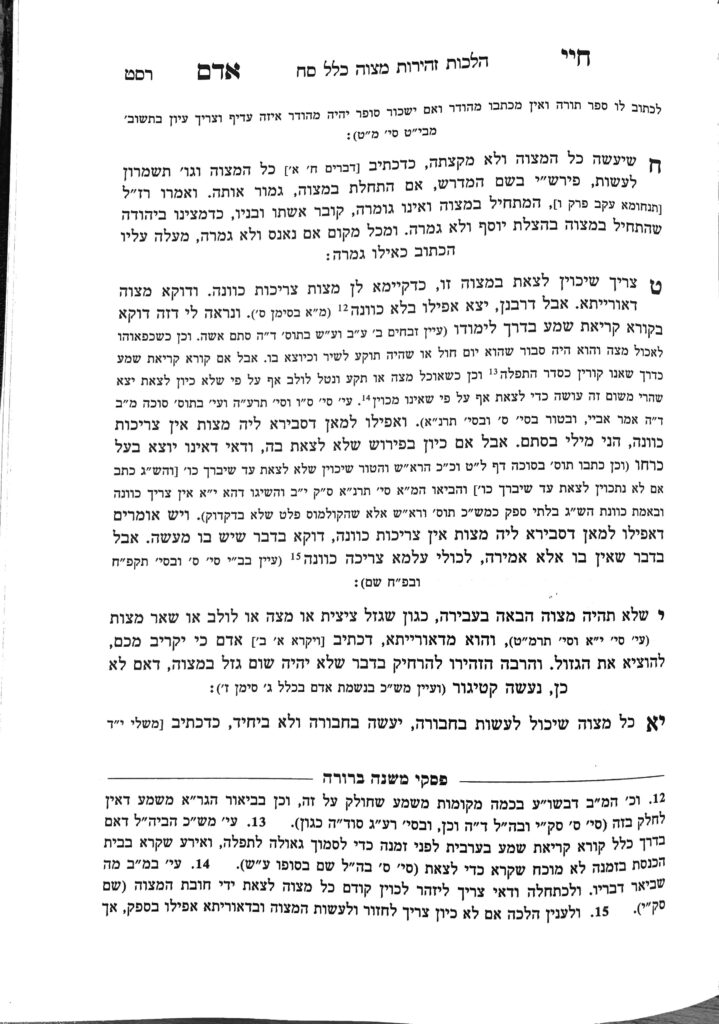We are continuing in siman 10, discussing the concept of mitzvah habaah b’aveirah. We have learned that the aveirah affects the fulfillment of mitzvah to the extent and that one is not yotzei the mitzvah, even if the situation occurs unintentionally.
The poskim discuss an application of this concept. A person is not allowed to learn or daven in a place where there is tzoah, excrement of humans or certain animals. If a person did not realize there was tzoah and davens there, if there was no reason to expect that there be tzoah in that place, they are yotzei bedieved, as they are considered an anus,it happened against their will. If it is a place where there may have been tzoah, and they were negligent in checking, they must repeat their davening. They have transgressed the aveirah of vehaya machanecha kadosh (Devarim 23:15). The Torah teaches us that wherever the Jewish people should live, they should keep the area kadosh by establishing bathrooms outside of the encampment so that the camp remains kadosh for words of torah and tefillah.
There is a machlokes whether this concept is applied to birchas hamazon. Although the Chayei Adam is lenient, the Biur Halacha is machmir, and the conclusion of the Mishnah Berurah is that one would repeat birchas hamazon. The Biur Halacha points out that in addition to transgressing vehaya machanecha kadosh, the person also transgresses ki devar Hashem bazah, disgracing Hashem’s name. He considers this a mitzvah habaah b’aveira.
If a person knew there was tzoah and purposely ignored it, that person must repeat the tefillah or birchas hamazon. Even though some acharonim consider birchas hamazon a safek, the Mishnah Berurah disagrees, and writes that one definitely has to go back even for birchas hamazon. There is no disagreement in regards to tefilah; one definitely goes back.
Be’ezras Hashem, we will discuss other applications of this concept.
Summary
- Mitzvah habaah b’aveirah, performing an aveirah while trying to perform a mitzvah, is an issur deoraysa. Not only is the mitzvah invalidated, but a person trangresses an aveirah as well, and what was meant to be a defender in heaven ends up becoming a prosecutor.
- An example of a mitzvah habaah b’aveirah is davening, learning or reciting birchas hamazon in the presence of tzoah. If one was completely unaware, and had no reason to suspect the tzoah, they are yotzei bedieved. If there was reason to suspect the tzoah, or they knew of its existence and purposely ignored it, they must repeat the tefillah or birchas hamazon.



